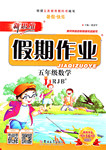ÌâÄ¿ÄÚÈÝ
14£®A couple of weeks ago£¬my dad had a total knee replacement operation on his left knee£®Later in his ward£¬he was laughing as he told the story of hearing the hammer and saw £¨¾â£© as they took out the bone£®With a smile on his face£¬he advised the doctors to sharpen the saw£¬since he could smell the bone burning as they removed it£®He came home and did the exercises the doctors had given him and even when it hurt he managed to make jokes about the new metal knee being heavier£¬which made it harder to lift£¬but he did lift£¬bend and move it anyway£®
Yesterday£¬I went to visit my parents and was told by Mom that he was in the room for keeping his tools£®I walked into the room to find him sitting on the bench laughing£®I asked what on earth he was doing£®He explained that since something went wrong with his walker £¨ÖúÐмܣ© he was changing the legs of it£®It seemed that Mom's walker£¬which she had used five years ago£¬was broken on the top£¬but the legs were in good condition£®Those legs wouldn't fit and he couldn't get off the one he had changed so he couldn't get back£®
Together£¬my dad£¬with the useless knee£¬and I£¬with the crippled £¨²Ð·ÏµÄ£© arms and hands£¬worked and worked laughing all the while£®The more trouble we had£¬the harder we laughed£®We did finally get the walker fixed and got back£®Tired and feeling the physical pain£¬we had created a wonderful heart-warming memory£®I have been fortunate enough to have many such minutes with my dad£®
21£®Which of the following can NOT describe the character of the author's father£¿B
A£®Humorous£® B£®Stubborn£®
C£®Optimistic£® D£®Strong-willed£®
22£®According to the passage we can infer thatA£®
A£®the three people in the family all have physical problems£®
B£®the father complained about the pain in doing the exercises£®
C£®the mother refused to offer help to the father in trouble£®
D£®the author doesn't like joking with people£®
23£®Which can be a suitable title for the text£¿B
A£®My Dad's Knee
B£®Laughing with My Dad
C£®Being Disabled
D£®Walker in Need£®
·ÖÎö ±¾ÎÄÊÇһƪ¼ÇÐðÎÄÔĶÁ£¬ÔÚÎÄÕÂÖÐ×÷ÕßÕ¹ÏÖÁË×÷Õߵĸ¸Ç×ËäÈ»½ÓÊÜÁËÏ¥¸ÇÊÖÊõ£¬µ«ÊÇËûÔÚ²¡·¿ÖÐÒÀ¾É±£³Ö×Å×Ô¼ºµÄЦÈÝ£¬ÔÚ×öÁ·Ï°ÊÜÉ˵ÄʱºòÒ³±íÏÖ³ö¼áÇ¿ÀÖ¹ÛµÄÆ·ÖÊ£¬ÕâÖÖÆ·ÖÊÓ°ÏìÁË×÷Õߣ¬Ê¹ËûÒ²ÄÜÀÖ¹ÛµÄÉú»î²¢Ó븸Ç×¹²¶È¹ýºÜ¶à»¶ÀÖµÄʱ¹â£®
½â´ð 21£®B ÍÆÀíÅжÏÌ⣬¸ù¾ÝµÚÒ»¶Î"he advised the doctors to sharpen the saw£¬since he could smell the bone burning as they removed it£®"¿É¿´³ö¸¸Ç×µÄÓÄĬ£»¸ù¾ÝµÚ¶þ¶Î"but he did lift£¬bend and move it anyway"¿É¿´³ö¸¸Ç×ÊǺܼáÇ¿µÄ£»¸ù¾ÝµÚÈý¶Î"find him sitting on the bench laughing"ºÍµÚËĶÎ"The more trouble we had the harder we laughed£®"¿É¿´³ö¸¸Ç׶ÔÓÚÉú»îµÄÀÖ¹Û£¬¶øÎÄÕÂδÌá¼°¸¸Ç׵ľóÇ¿£¬¹ÊÑ¡B£®
22£®A ÍÆÀíÅжÏÌ⣬¸ù¾ÝµÚÒ»¶Î"my dad had a total knee replacement operation"£»µÚÈý¶Î"It seemed Mom's walker£¬which she had used five years ago"¼°µÚËĶÎ"I£¬with the crippled £¨²Ð·ÏµÄ£© arms and hands£¬"¿ÉÖª¸¸Ç×½øÐÐÁËÏ¥¹Ø½ÚÖû»ÊÖÊõ£¬ÂèÂèÐÐ×ßÓÐÀ§ÄÑ£¬¶øÎҸ첲ºÍÊÖÊDzзϵģ¬Òò´Ë¿ÉÒÔ¿´³ö¼ÒÀïµÄÈý¸öÈ˶¼ÓÐÉíÌåÉϵÄÎÊÌ⣬¹ÊÑ¡A£®
23£®B Ö÷Ö¼´óÒâÌ⣬ȫÎÄͨ¹ýÈý¸öƬ¶ÎÕ¹ÏÖÁ˸¸Ç×¼áÇ¿ÀÖ¹ÛµÄÆ·ÖÊ£¬²¢ÇÒÓÉ×îºóÒ»¶Î¿É¿´³ö×÷ÕßÊܵ½Á˸¸Ç×ЦÉùµÄ¸ÐȾ£¬Ó븸Ç×¹²¶È¹ýºÜ¶à»¶ÀÖµÄʱ¹â£¬¹ÊÑ¡B£®
µãÆÀ ×öÔĶÁÀí½âʱҪ¿ìËÙµÄä¯ÀÀÈ«ÎÄ£¬°ÑÎÕÎÄÕÂÖ÷Ö¼´óÒ⣬´ø×ÅÎÊÌâ»Øµ½ÔÎÄ£¬Ñ°ÕÒϸ½Ú»ò¸ÅÀ¨ÏàÓ¦µÄ´ð°¸£¬×îºóÒªÀíÇå×÷Õßд×÷˼·£®

 ÐÂ˼ά¼ÙÆÚ×÷Òµº®¼Ù¼ªÁÖ´óѧ³ö°æÉçϵÁдð°¸
ÐÂ˼ά¼ÙÆÚ×÷Òµº®¼Ù¼ªÁÖ´óѧ³ö°æÉçϵÁдð°¸| A£® | called up | B£® | called on | C£® | called for | D£® | called in |
| A£® | taking | B£® | take | C£® | to take | D£® | took |
-I agree£¬but the problem is _______he has refused to£®£¨¡¡¡¡£©
| A£® | will not be sent£» that | B£® | not be sent£» that | ||
| C£® | should not be sent£» what | D£® | should not send£» what |